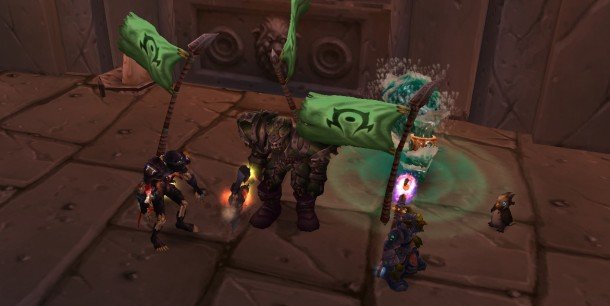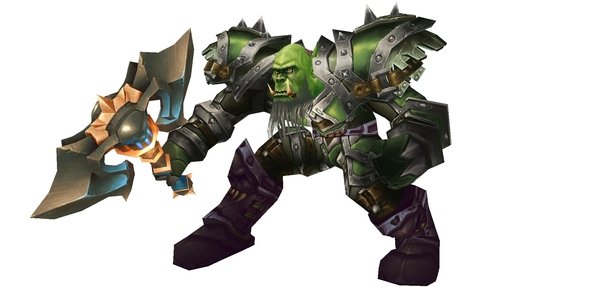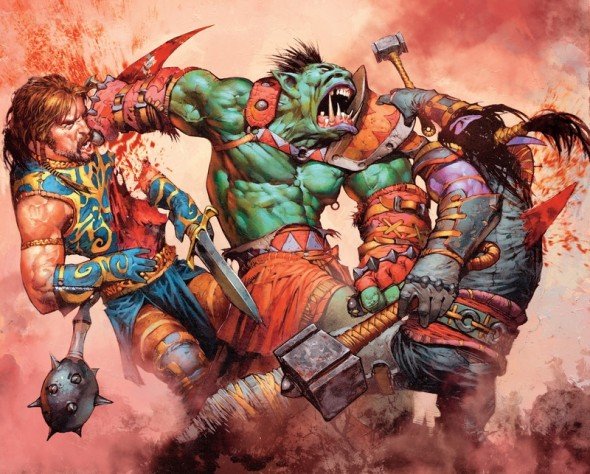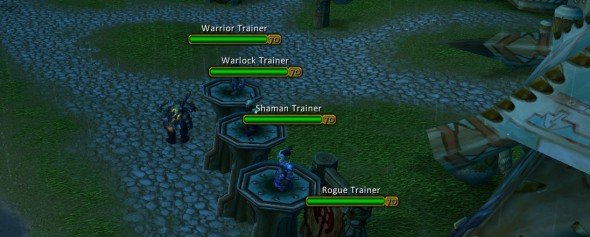
Earlier this week, Blizzard opened up World of Warcraft's Arena Tournament servers for public signups. Every time they open, players can pay $20 for access to a separate server loaded with max-level characters, the best gear/enchants/gems in the game, and unlimited gold to spend—all of which adds up to provide the perfect competitive PvP environment for arena fans. The last time the tournament server was live, Josh grabbed a few of his friends and gave it a shot. We'll be sharing their thoughts on what they learned and if they thought it was worth the money over the next few days.

Another Side of Warriors
Marty Cortinas
On the live World of Warcraft servers, I'm a Warrior. A Protection Warrior, usually, tanking for my guild against the likes of Arthas and Deathwing. This, I under-stand. PvP situations? Not so much. I've spent a lot of time in the Battle-grounds using my Protection spec to carry flags and to be annoying. But Arena is a lot different from Battlegrounds—your decisions have a huge impact on the performance of your team.
My first step was to read some forum posts and talk with friends who were Arena regulars. I had entertained ideas of playing a Rogue or Mage, until I ran into a Warrior FAQ on the site Arena Junkies.
The FAQ had a ton of information about specs, equipment, and tactics. There was a detailed discussion about maximizing damage output once your victim was in your grasp. It was a lot of new information to digest, and this was about a class I've been playing for years. The notion of learning a new class was shelved so I could concentrate on bashing heads as an Arms Warrior.

When we played, we either had a three-DPS lineup or a two-DPS/one-healer lineup, which changed the way I played matches. With the DPS only, we'd make a kill order, and I tried to cause as much pain as I could. With a healer, things become more complicated and more communication was required.
Keep up to date with the most important stories and the best deals, as picked by the PC Gamer team.
Having a healer added two things to my plate that I learned about the hard way—by one of us dying. The first is that line of sight matters a lot. I found creative ways to accidentally get out of our healer's line of sight at crucial times, killing myself and dooming the team. So the tunnel vision I'd developed in the all-DPS lineups was replaced by a more careful approach. Are there pillars? Where is Jessica? If I drop off this platform to hit that Death Knight, will I get healed? I still made a ton of mistakes, but at least I was aware of them.
The other matter was keeping the healer safe. A dead Priest casts no heals. Some-times Jessica would call for help, but I found it was better to keep one eye on her to see if she had picked up an attacker. Awareness of the whole team's situation became a larger priority for me.
I also learned that it doesn't pay to underestimate Warrior healing. When our composition was three DPS, I found I was a big target for the other team, given that the Rogue was in stealth and the Mage was invisible. The first few times this happened, I would be whacking away at our target then suddenly drop dead.

I learned to use Enraged Regeneration every match. It paid off in a game against a Druid-Shaman-Rogue lineup. We focused down the Rogue, then killed the Druid, but not before the Shaman took out our Mage and Rogue. That left me to battle it out with the Elemental Shaman. He did his best to keep his distance and burn me from afar, but Second Wind and my new favorite trick—activate a stamina trinket, then hit Enraged Regeneration—returned almost 130,000 health, and I was able to kill him.
I'm still definitely not using my entire toolbox. I don't change stances as much as I should, and there are things I forget, like Recklessness and Retaliation. But I'm learning every time I step in the Arena.
If you're interested in trying your luck on the Arena Tournament servers, you can sign up on the official site or read the FAQ for more info.
PC Gamer is the global authority on PC games—starting in 1993 with the magazine, and then in 2010 with this website you're currently reading. We have writers across the US, Canada, UK and Australia, who you can read about here.


